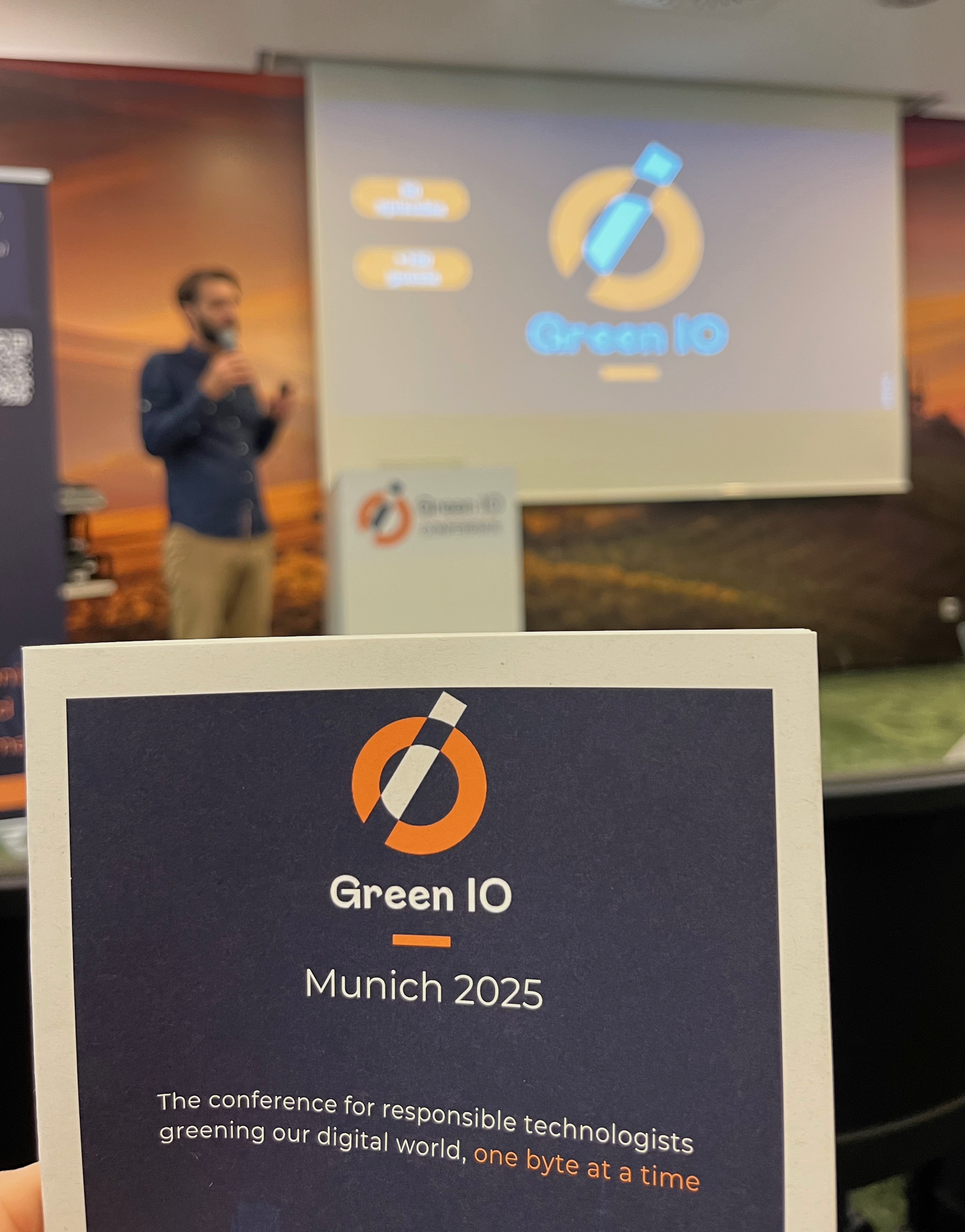From APIs and AI Agents to Green IT: Takeaways from GreenIO, Apidays, and GenerationAI Munich

I saw the GreenIO conference, a gathering of sustainable tech enthusiasts, advertised a few months ago. I wasn’t prepared to pay the ticket price however. It wasn’t until the week of the conference that I saw tickets advertised for free online, so I was rejoiced to be able to attend! So at the beginning of this month, I joined in with technologists, researchers, and digital sustainability advocates to explore the current frontiers in tech sustainability, APIs and AI. The ticket included two other conferences as well - the GenerationAI and Apidays conferences. I enjoyed attending some of these sessions too and learning about topics, which were till then, foreign to me.
Two major themes took centre stage: how we govern the rise of MCP (Model Context Protocol) that comes with AI agents, and how we ensure sustainability is intertwined in tech business practices. The talks and conversations I partoook in revealed uncovered the intracies in these topics as well as the passion in the industries to move them forward.
MCP: The Next API Revolution
Among others, Andrew Humphreys (Gartner) and Matthias Biehl (IBM) delivered similar takeaways: MCP is in the same position Application Programming Interface(APIs) were about a decade ago. For those not in these field, APIs are interfaces that allow software systems to communicate with each other, while MCPs define how language models interact with context, tools, and memory within agentic frameworks. The two professionals find this position promising, powerful, but currently lacking governance.
They reckoned that API management will evolve into MCP management, as many lessons learned from APIs will be relevant for MCPs. And effective MCPs will allow for effective agents. It seems that many companies are asking: "How do we put the right AI strategy in place?”, and this involves how to manage MCPs.
Green IT: It needs to be intertwined with business
The key message I got from the GreenIO talks was that it is easy for individuals and companies to be taken in with the AI hype (I would count myself included to an extent), but that it is crucial that we have sustainability at the forefront of our minds as well. Here I have noted down particular aspects of talks which stood out to me:
A major barrier to sustainability in tech is the lack of consistent data. And one needs to know this to improve one's carbon footprint for measurement and motivation purposes. It’s simply difficult to compare the environmental footprint of digital products when there are so many different components to it.
Resilio is tackling this by building a lifecycle assessment (LCA) database for IT, while Sopht and Accenture have developed a framework to automate carbon footprint calculations and come up with pathways to sustainability, across IT systems. It is promising that there are innovative companies, and not only these ones, but also MetaFinanz for example, at the forefront of this issue.
It was clear that there is a way to go with the motivaing but also sobering presentation from The Green Web Foundation, who is pushing for a fossil-free internet by 2030. When I asked Chris Adams and Katrin Fritsch how on track we were, their answer wasn't encouraging. The tech is ready, but the policy isn’t. Worse, the explosive growth of AI is now undermining previous gains. Sustainability is not currently built into sustainability policy.
What's interesting is that previously, training models accounted for most emissions. Today, it's inference from the everyday use of AI.
Thorsten Jonas (SUX Network) warned of AI’s illusion of creativity. It may feel productive, but the efficiency gains are often overstated. At the same time, we risk outsourcing our critical thinking to machines.
Claire Thornewill captured the paradox: "AI is marketed as a climate solution, but it’s also a climate problem." She cautioned against obsessing over single eco-actions while ignoring bigger systemic issues (like being vegan but needlessly owning a pick-up truck). Her takeaway: zoom out. Sustainability isn’t only relevant for specific aspects of life, but all of them.
Resources Worth Exploring
If you're looking to dive deeper into APIs or sustainability, these resources I came across at the conference are a great place to start:
APIs
Final Thoughts
AI and sustainability aren’t, and should never be, separate conversations, because of the huge impact it is already having on the environment.
Steffen Müller put it simply: "We need to weave sustainability into every role, not just assign it to one team.” So in the next few months I am setting some goals. The main one is: how can I incorporate sustainability into my job?
Then in the medium-term I will be looking into making my website here, greener. Furthermore, I aim to be more aware of my AI usage, only using it when I deem it necessary, for although it is often free, it is not an unlimited resource as we may think so at first glance.
Finally, I'm also looking forward to getting into the signed copy of "Hacking APIs" which Corey Ball was giving away for free!
It was inspiring listening to the talks and meeting many individuals over the course of the two days. I look forward to following these fields and seeing positive progress in MCP management as well as sustainability in tech!